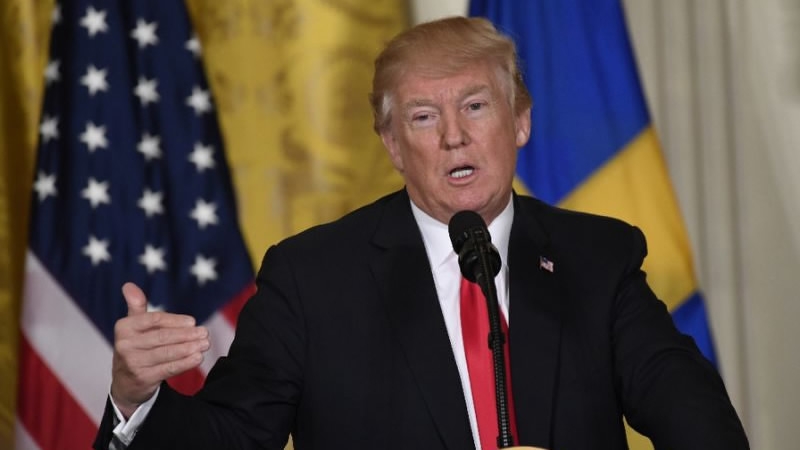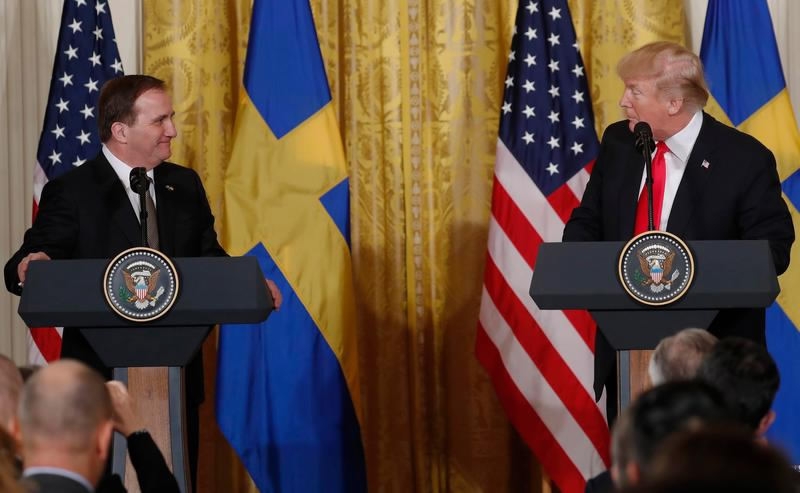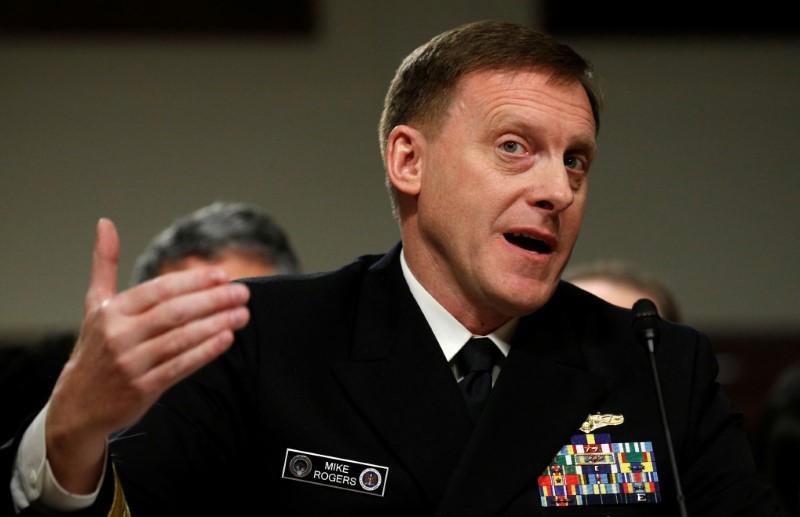
Politics
08:11, 07-Mar-2018
Trump vows to 'counteract' any midterm election meddling by Russia
CGTN

US President Donald Trump acknowledged Tuesday that Russia and "other countries" meddled in the 2016 presidential election that brought him to power, but vowed to make sure it would not happen again.
Trump, speaking at a joint press conference with Swedish Prime Minister Stefan Lofven at the White House, also claimed that the Russian interference did not affect the result of the 2016 race.
"The Russians had no impact on our votes whatsoever," said Trump, who has repeatedly played down the Russian influence and has strongly rejected allegations of collusion between his election campaign and Moscow.
"But certainly there was meddling and probably from other countries and maybe other individuals."

US President Donald Trump holds a joint news conference with Sweden's Prime Minister Stefan Lofven (L) at the White House, Washington, March 6, 2018. /Reuters Photo
US President Donald Trump holds a joint news conference with Sweden's Prime Minister Stefan Lofven (L) at the White House, Washington, March 6, 2018. /Reuters Photo
Asked if he was worried it would happen again, the president said: "We'll counteract whatever they do. We'll counteract it very strongly.
"You don't want your system of votes to be compromised in any way," he added. "And we won't allow that to happen."
"We haven't been given credit... but we're working very hard on the '18 election and the '20," Trump said.
Trump said his administration is conducting a deep study and will have strong suggestions on protecting the midterms and beyond.
"You have to be very vigilant," Trump said. "And one of the things we're learning it is always good, it's old-fashioned, but it's always good to have a paper backup system of voting. It's called paper. Not highly complex computers. Paper. A lot of states are going to a paper backup."
The US holds mid-term elections in November and a presidential election in 2020.
Weak response to Russia
Top intelligence officials, however, have said that so far, the US has responded weakly to Russia's disinformation campaign to sow discord in America and raise doubts about the integrity of the presidential election.
Adm. Mike Rogers, the outgoing director of both the US Cyber Command and National Security Agency (NSA), said the US response to Russia has not been strong enough to change Moscow's activities.

US National Security Agency Director Admiral Mike Rogers testifies before a Senate Armed Services Committee hearing on foreign cyber threats, on Capitol Hill in Washington, Jan. 5, 2017. /Reuters Photo
US National Security Agency Director Admiral Mike Rogers testifies before a Senate Armed Services Committee hearing on foreign cyber threats, on Capitol Hill in Washington, Jan. 5, 2017. /Reuters Photo
Rogers told Congress last week that he's taken steps to respond to the threat, but that neither Trump nor Defense Secretary James Mattis has granted him any additional authorities to counter Russian efforts to sow discord in the United States.
"I believe that President (Vladimir) Putin has clearly come to the conclusion that there's little price to pay and that therefore, 'I can continue this activity,'" Rogers said. "Clearly what we have done hasn't been enough."
In January, the Trump administration was harshly criticized for not imposing new sanctions when a list of 114 Russian politicians and 96 oligarchs was released to comply with a law Congress passed to punish Moscow for interfering in the 2016 US election.
Questioned about why no new sanctions have been issued, National Intelligence Director Dan Coats said Tuesday that they were forthcoming. Treasury Secretary Steven Mnuchin "is going to be announcing those within a week," Coats told members of the Senate Armed Services Committee where he testified about worldwide threats.
Coats said sanctions are expected against at least some of the 13 Russians accused in an indictment of an elaborate plot to disrupt the election. The indictment issued by the US special counsel charged them with running a huge but hidden social media trolling campaign aimed in part at helping Trump win.
The federal indictment represents the most detailed allegations to date of illegal Russian meddling during the campaign that sent Trump to the White House. The criminal charges are also the first against Russians believed to have secretly worked to influence the outcome. Putin said they didn't work on behalf of his government.
Coats suggested that sanctions also could be imposed on additional individuals as well.
Coats agreed that the US must do more to deter attacks. Coats said there were things the administration is doing, but they could only be discussed in a classified session.
He said the Trump administration's national security team was discussing a range of threats facing the US. But he said: "There has not been yet a formulation yet of a lead agency that would work with Congress on legislative action and putting a policy in place."
Democrats also have criticized Trump for not doing more to punish Russia for its activities during the 2016 election.
Sen. Martin Heinrich, D-N.M., said saying the administration is taking a "whole of government approach" is essentially saying "it's somebody else's job."
"When are we going to expect an actual cyber plan from this administration?" Heinrich asked.
(Sources: Agencies)
11159km

SITEMAP
Copyright © 2018 CGTN. Beijing ICP prepared NO.16065310-3
Copyright © 2018 CGTN. Beijing ICP prepared NO.16065310-3